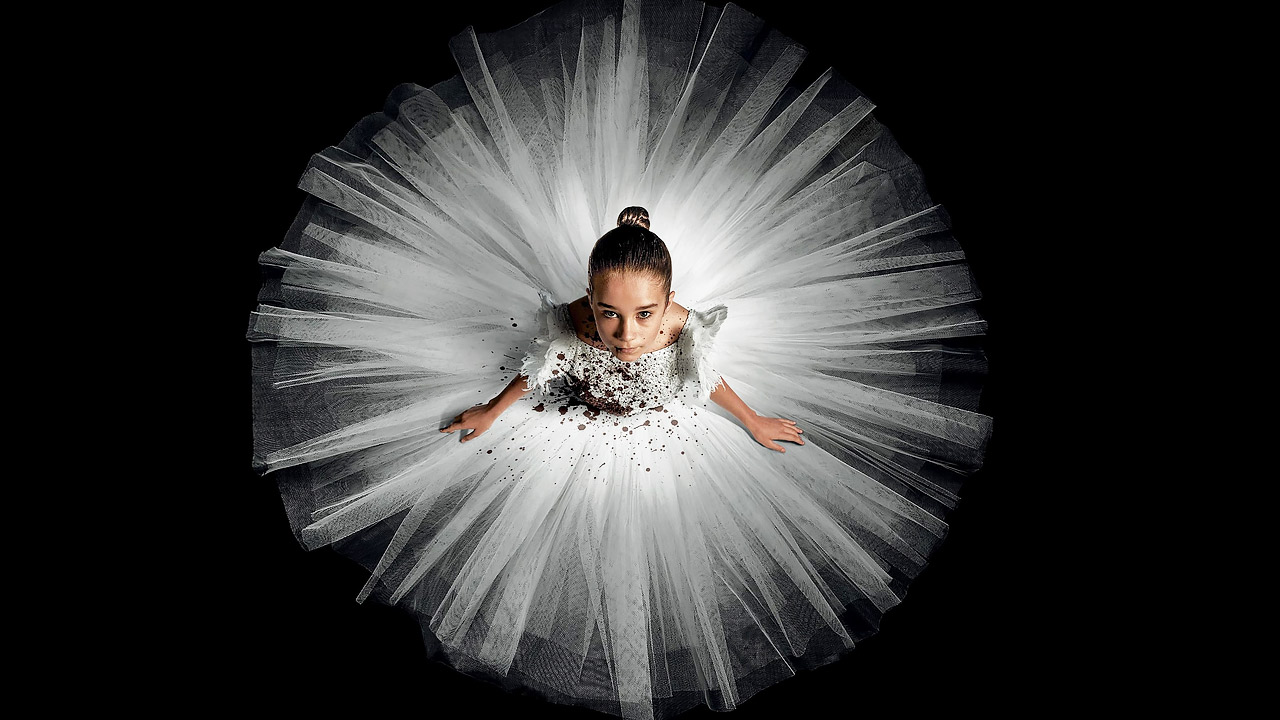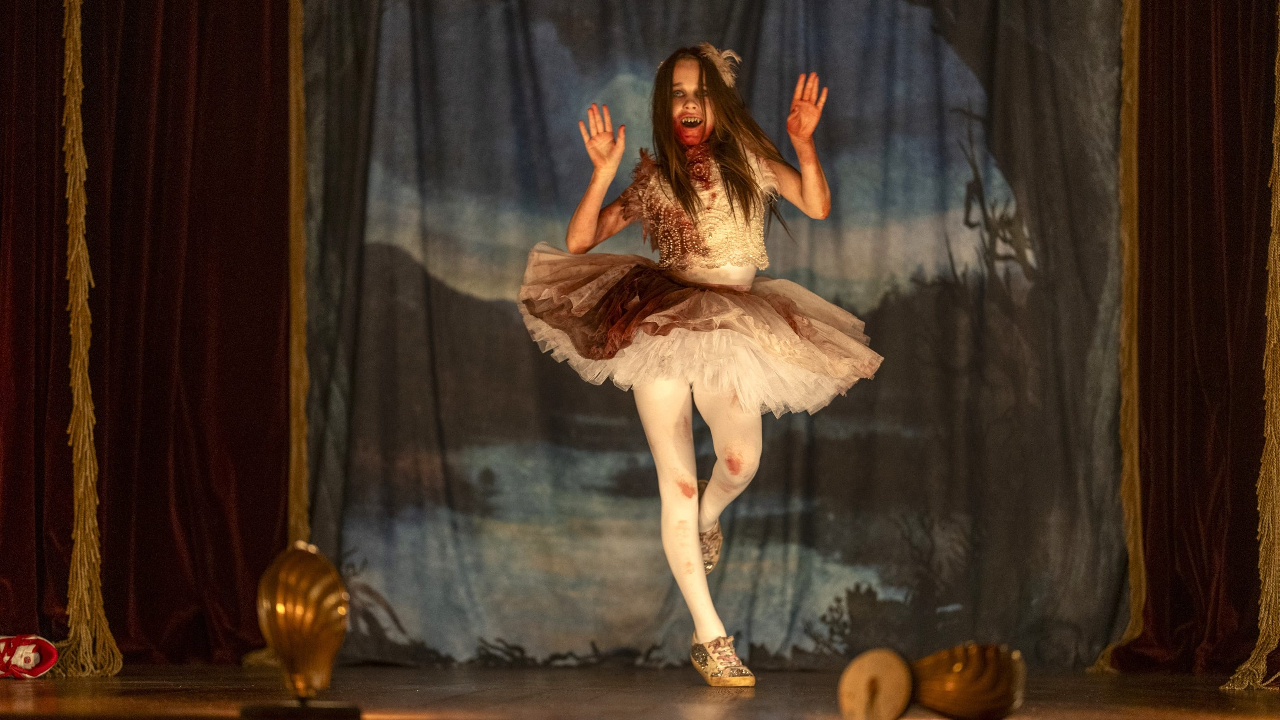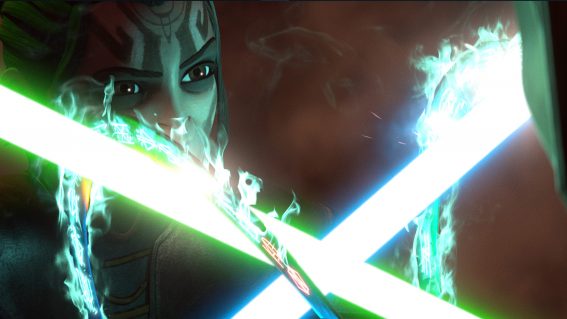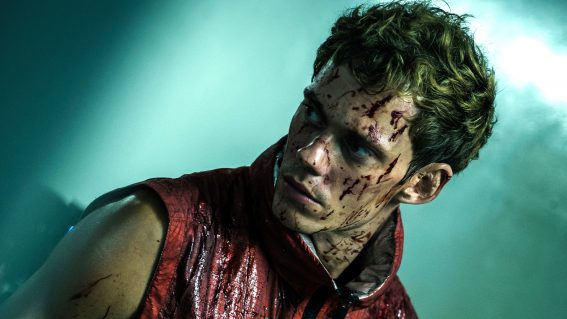Like its tween vampire character, Abigail needs fresh blood

We all know the vampiric twist in Abigail—that our teenaged title character is a bloodsucker, despite her ballerina dreams—from the horror film’s poster. Luke Buckmaster was exhausted by how long it takes to get to that bloody revelation.
Abigail (2024)
And to think: all this time we’ve been treated like suckers, watching vampire movies without any ballerinas in them. The hordes of viewers who’ve been hankering for blood-stained tutus and pirouetting Nosferatus will finally be satiated by Abigail, the titular character of this serviceable but exhausting midnight movie being both a fabulous dancer and a neck-chewing connoisseur of human flesh.
Continuing the age-old tradition of lawbreakers making stupid decisions—this one, sucks to be them, involving Dracula’s offspring—a bunch of goons nab 12-year-old Abigail (Matilda the Musical star Alisha Weir) and lock her up in a mansion, while they wait for the ransom money. A good half dozen of these stereotyped criminals—the muscle, the brains, the hacker etcetera—seems like overkill for this mission, but comes with the narrative justification that they’ll later be picked off one by one as their killer twirls, twirls, twirls.
The person managing the job, appearing only briefly, is Giancarlo Esposito’s Lambert, who, after they arrive with the girl at a beautiful old mansion filled with shiny ornaments, orange lamps and chesterfields, tells them “the hard part is over.” The film’s grisly appeal of course relies on the opposite being true.
As the deadbeats get acquainted with each other, Melissa Barrera’s Joey—a medic and recovering junkie—performs a round of Holmesian deduction, going through the group and declaring everybody’s secrets—for instance revealing Dan Stevens’ Frank is an ex-detective and getaway driver Dean (the final performance of Angus Cloud) is a sociopath. It’s one of those “gee, aren’t they clever?” scenes designed to show off the character’s wit while demonstrating the film’s lack of it.
Just about everybody will go into Abigail knowing the premise (the poor sods who don’t are in for a very different ballerina movie). However directors Matt Bettinelli-Olpin and Tyler Gillett—whose previous films include 2022’s Scream reboot, Scream VI, and the conceptually similar Ready or Not—pretend that Abigail being a vampire is a big reveal, making us undergo a lengthy wait for confirmation of what we already knew. Thus placing extra importance on these preliminary moments feeling fresh and interesting—or at least engaging enough to not feel like the drama is merely treading water.

But the characters are so bland I couldn’t wait for them to be minced. Before the bloody carnage begins, the film’s pace is in the doldrums, the first kill offering an opportunity to pump it full of blood while old mate Abigail does the opposite. Instead it’s rather flat and sends the film deeper into a hole, unhelped by rote dialogue such as “something doesn’t add up.” When the group properly realise the extent of their circumstances, and the beast is well and truly let out of her cage, the film finally gets a second wind, if you consider its so-so introductory kidnapping scene the first.
There’s no question as to who is the film’s star attraction, its pièce de résistance, its reason for being. Looking at the titular character through the lens of an artist, I appreciate her devotion to her craft, and her implied appreciation of that old Shakespeare phrase about the whole world being a stage. I was impressed, in one scene, to observe people walking in on her while she dances with a headless corpse, to an audience of none. There’s something pure about the artist and the audience coalescing into a single entity, a single person, art by and for one; no more, no less.
A small embellishment late in the film, involving a physical connection between the monster and one of those Central Casting goons, further emphasises Abigail’s performative aspects, adding a fleck of freshness to a well-flogged genre that nevertheless once again feels quite musty and moth-filled. But that final act is a killer, in the worst of ways: if the film takes a long time to get going, it seems to take an eternity to end. Reinvigorating vampire narratives isn’t easy—even with the assistance of a bloodsucking wunderkind.














